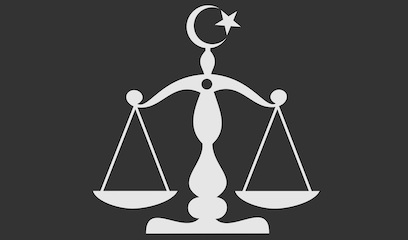
Islamic Law (Sharia). The legal and ethical framework in Islam derived from religious teachings, governing various aspects of life for Muslims. It is based on the Qur’an (Islam’s holy book), the Sunnah (traditions and practices of the Prophet Muhammad), Ijma (scholarly consensus), and Qiyas (analogical reasoning).
Sources of Islamic Law
Islamic law is primarily derived from:
1. The Qur’an – Considered the direct word of God, it provides fundamental principles for legal and moral conduct.
2. The Sunnah – The recorded sayings and actions of the Prophet Muhammad, which offer further guidance on applying Islamic principles.
3. Ijma (Consensus) – The agreement of Islamic scholars on legal issues not explicitly covered in the Qur’an or Sunnah.
4. Qiyas (Analogical Reasoning) – The process of drawing conclusions based on established legal principles in new situations.
Branches of Islamic Law
Islamic law covers various aspects of life, including:
• Ibadah (Worship) – Laws concerning prayer, fasting, charity (Zakat), and pilgrimage (Hajj).
• Mu’amalat (Transactions and Contracts) – Commercial law, business ethics, and financial dealings.
• Ahwal al-Shakhsiyyah (Personal Status Law) – Marriage, divorce, inheritance, and family matters.
• Hudud (Fixed Punishments) – Prescribed penalties for serious offenses like theft, adultery, and apostasy.
• Qisas and Diyya (Retribution and Blood Money) – Laws related to personal injury and homicide.
• Tazir (Discretionary Punishments) – Punishments left to the discretion of a judge or ruler for lesser offenses.
Schools of Islamic Jurisprudence
Islamic law is interpreted through different madhabs (schools of thought), which have varying approaches to jurisprudence:
• Sunni Schools:
• Hanafi – Emphasizes reason and analogy; widely followed in South Asia, Turkey, and parts of the Middle East.
• Maliki – Based on the practices of the people of Medina; common in North and West Africa.
• Shafi’i – Emphasizes hadith (prophetic traditions) as a primary source; followed in Southeast Asia and parts of East Africa.
• Hanbali – The most conservative, focusing strictly on textual sources; prevalent in Saudi Arabia and parts of the Gulf.
• Shia Schools:
• Ja’fari (Twelver Shia) – Emphasizes reason and the role of the Imams; practiced in Iran, Iraq, and Lebanon.
• Ismaili and Zaydi Schools – Other Shia branches with distinct legal interpretations.
Application and Modern Adaptations
Islamic law is applied differently across Muslim-majority countries. Some nations, such as Saudi Arabia and Iran, implement Sharia as the primary legal system, while others, like Egypt and Pakistan, integrate it within secular laws. In some countries, Sharia mainly governs personal and family matters.
Contemporary debates around Islamic law include discussions on human rights, gender equality, and its adaptation to modern societies. Many legal scholars work on reforming traditional interpretations to align with contemporary ethical and legal standards.
In short, Islamic law is a comprehensive legal and moral system influencing Muslim societies worldwide. While its application varies, it remains central to Islamic thought, guiding religious, social, and legal aspects of life for millions of people.